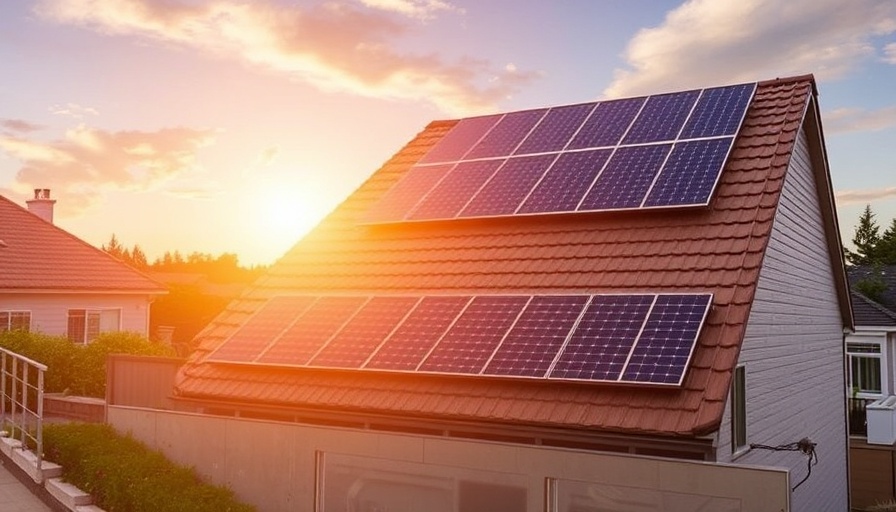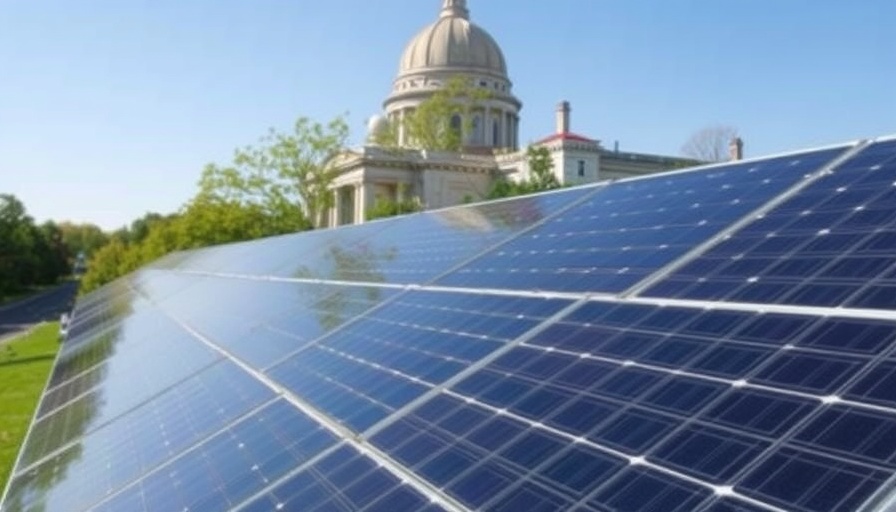
Understanding the Sunrun Solar Panel Experience
As homeowners increasingly seek ways to reduce energy costs and promote sustainability, solar energy emerges as a viable solution. Sunrun, one of the largest residential solar installers in the United States, presents an attractive option. Their model allows homeowners to lease solar panels rather than purchase them outright, potentially resulting in significant savings and lower energy bills over time. However, as with any investment, understanding both the pros and cons is critical.
What You Need to Know About Sunrun's Solar Panels
Sunrun offers solar leases, meaning customers pay a monthly fee for the panels installed on their roofs without the high upfront costs often associated with purchasing solar equipment. This arrangement is appealing for many homeowners aiming to avoid the hefty price tag of solar installations—often in the range of $20,000 to $30,000.
Moreover, Sunrun manages the installation process from permits to inspections, which can ease the burden for the consumer significantly. A typical solar lease with Sunrun includes a guaranteed production of energy, with refunds issued for any shortfall. This gives you peace of mind, knowing you won’t be stuck with a system that doesn't perform to expectations.
Customer Experiences: Satisfaction vs. Accountability
While many homeowners, like those in a Reddit discussion thread, express satisfaction with their experiences—highlighting significant savings, ease of installation, and improved home value—others recount harrowing stories of poor customer service and unexpected costs. In a landscape of 2.58 out of 5 stars on some review platforms, the mixed reviews paint a picture of a company striving for customer satisfaction but often struggling to deliver during the customer service phase. Some users feel misled about the expected energy production from their panels, which can lead to lingering frustration.
For example, one reviewer reported having high utility bills even after installing a system they believed would render their energy consumption almost free. This brings to light a crucial counterargument—that despite the alluring advantages, potential buyers must scrutinize the fine print and understand the commitment involved in a long-term lease.
Comparative Analysis: Leasing Versus Buying
It’s essential to juxtapose the leasing experience with outright purchasing to understand what might be best for your situation. Leasing solar panels, like through Sunrun, can provide immediate benefits such as tax credits and guarantees on energy production, but it often implies ongoing costs. In contrast, purchasing solar panels can lead to greater long-term savings despite the initial investment. Depending on local incentives, like Illinois' Shines program, upfront costs can sometimes be mitigated, making it worthwhile for financially astute homeowners.
The Environmental Impact of Solar Energy
Choosing solar panels is not only a financial decision; it’s also an eco-friendly choice. Using renewable energy helps reduce reliance on fossil fuels, driving momentum toward a more sustainable future. With climate change increasingly influencing consumer behavior, the trend toward home electrification and solar energy adoption signifies a lasting shift in how we approach energy consumption.
Future Predictions: The Growth of Solar Energy Investments
As technology advances and society becomes more aware of climate issues, the demand for renewable energy sources is likely to rise. In the coming years, we can expect increased competition among solar companies, potentially driving down costs and improving customer service. This evolution could create a more transparent and accountable landscape for solar energy providers, benefiting consumers who are now more empowered than ever to reduce their carbon footprints.
Conclusion: Making Informed Decisions in Solar Energy
Deciding whether to install solar panels entails evaluating multiple factors, including your financial situation, energy needs, and environmental values. With companies like Sunrun simplifying the installation process, there’s no denying that making the transition to solar energy can be an advantageous choice.
As you contemplate this investment, review all options, understand the terms of your lease, and seek advice from those who have undertaken similar projects. The path to solar energy should be an informed and confident one—ensuring your investment pays off in both savings and contribution to a healthier planet.
 Add Row
Add Row  Add
Add 



 Add Row
Add Row  Add
Add 
Write A Comment